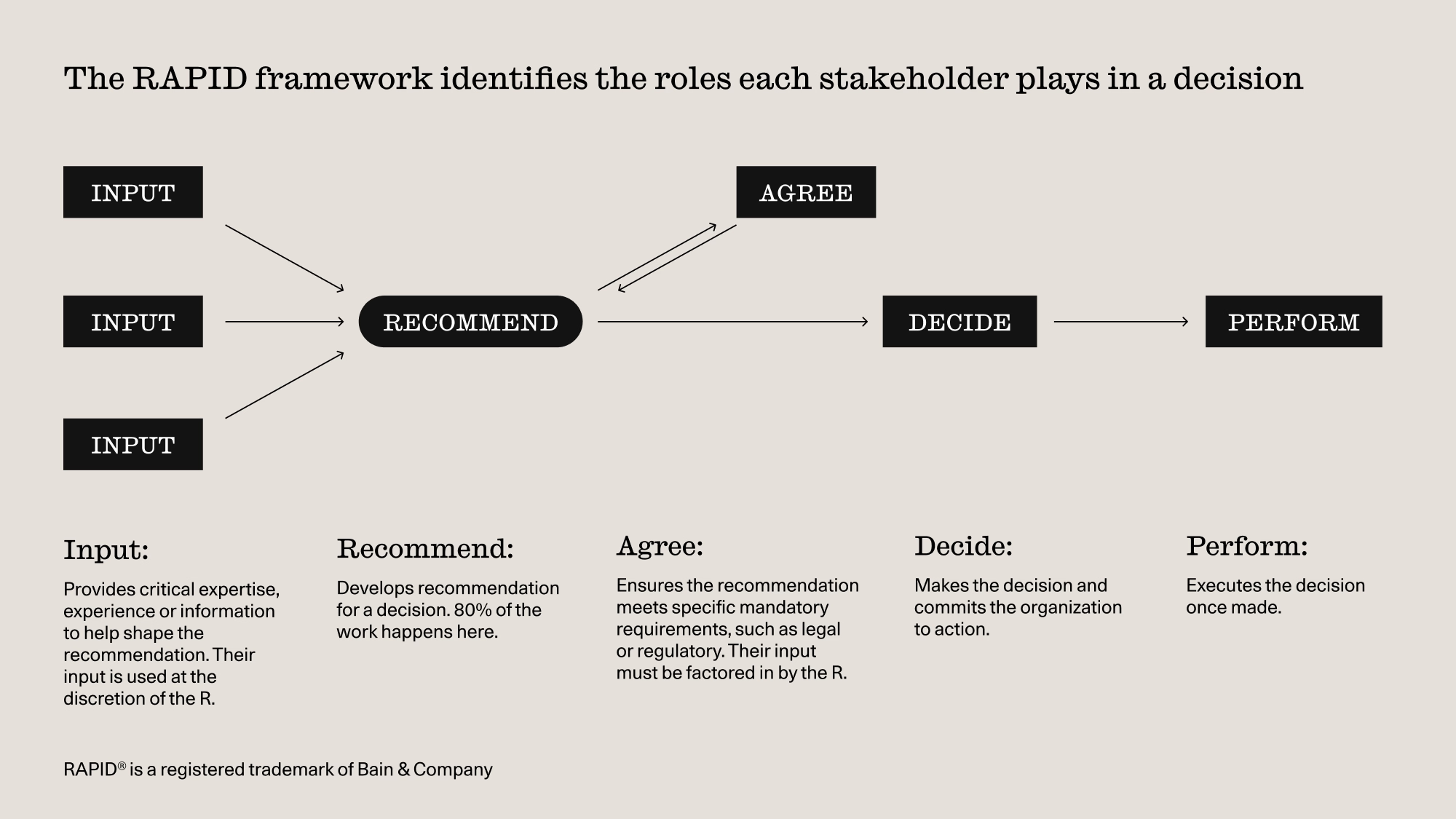
When caution becomes paralysis: the downside of over-consultation in uncertain times
When markets waver and consumer sentiment dips, it’s easy to think: “Better get everyone’s input before we proceed.” After all, the more brains in the room, the better the decision, right? Except that’s not always true. In fact, involving too many stakeholders can paradoxically limit your organisation’s ability to adapt and thrive — especially in times of volatility.
Why the circle widens in uncertain times
Naturally, caution spikes when confidence falls. From GDP forecasts that change by the week to share markets reacting to the slightest tremor, we’re living in a state of near-constant flux. The Chicago Board Options Exchange Volatility Index (VIX) and Asia-Pacific analyst reports often confirm what we feel: unpredictability is growing. And when uncertainty grows, so does our instinct to consult widely.
Yet research published in the Harvard Business Review confirms that adding more voices can dilute accountability and delay decisions. According to McKinsey, “research indicates that the quality and speed of decision making are both strongly associated with overall company performance”. Put bluntly: if you’re waiting on sign-off from half the company, your speed to market plummets just when it should accelerate.
What over-consultation looks like
Over-consultation often appears in well-meaning ways. Perhaps your team initiates yet another “alignment call” to capture everyone’s input. Or a straightforward new campaign lingers in legal or procurement for weeks until any advantage is lost. Teams whose work thrives on timeliness and agility feel this pain acutely
The downside is more than just wasted time: it’s missed opportunities. A brand that might have led the conversation suddenly appears unresponsive or, worse, tone-deaf if their “fast-turnaround” campaign trickles out weeks late.
Caution doesn’t equal indecision
There is, of course, a place for caution. Wildly uninformed decisions can be costly. But caution and decisiveness aren’t opposites; they should work together. True caution means weighing risks quickly and thoroughly, then moving with purpose. In fact, the cost of not acting can be just as high, especially when the speed of cultural moments is measured in hours, not weeks.
A telling example emerged during the early phases of COVID-19, when companies like Telstra and Woolworths rapidly adjusted their messaging to address emerging consumer concerns. By contrast, others were mired in stakeholder discussions and launched relevant messaging far too late. The difference was neither luck nor guesswork; it was streamlined decision-making.
Striking the balance
So how do you keep your organisation from drifting into committee chaos?
- Define decision rights early.
Ensure everyone knows who ultimately decides. A tool like Bain’s RAPID framework (Recommend, Agree, Perform, Input, Decide) can reduce confusion and build trust across teams. - Distinguish input from veto power.
Consulting different perspectives is healthy, but not everyone needs — or deserves — a final veto. Make it clear whose feedback is advice versus whose sign-off is essential. - Leverage agile principles.
Small, empowered teams move faster. Whether you use sprints or scrum boards, try iterative approaches that allow quick testing and adjustment rather than months of deliberation. - Reassess risk.
Investor and volatility expert Nassim Nicholas Taleb reminds us that delayed decisions during uncertainty can magnify consequences. Put simply, you can’t wait to see how everything turns out before taking action. Often, your ability to seize the moment is critical.

Leading through clarity
All of this calls for decisive leadership. Yes, empathy matters, and a good leader creates space for diverse opinions. But inclusive doesn’t mean indecisive. When leaders know exactly why a particular person or team has the final say, they empower faster and more effective decisions.
Where to from here?
Uncertain times won’t fade anytime soon. If anything, volatility is becoming the norm across Australia and Asia-Pacific. So the question remains: Will your organisation treat uncertainty as a reason to consult indefinitely, or a catalyst to act bravely?
The answer could mean the difference between relevance and irrelevance, between growth and stagnation. Embrace enough consultation to be smart, but not so much that you become stuck. It’s a delicate balance — but once struck, it will help you move forward in a market that isn’t waiting around.
